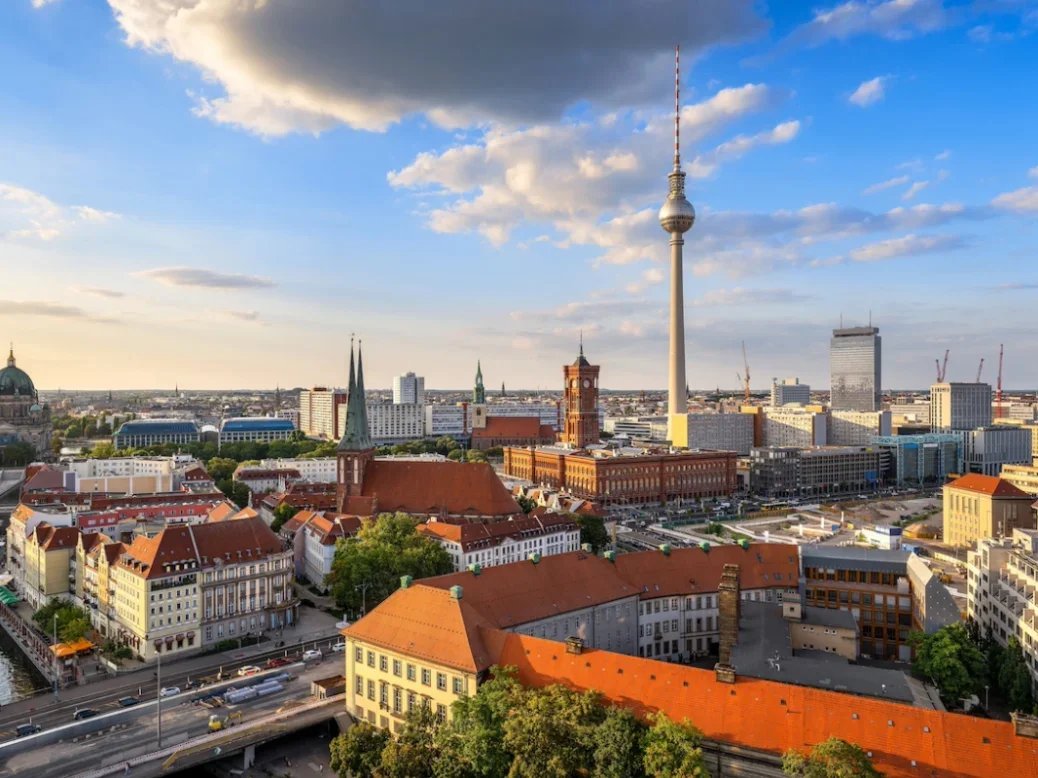
The number of wealthy Germans applying for residency in other countries has surged as the prospect of conscription becomes more ‘concrete’, a leading immigration expert has told Spear’s.
An uptick in enquiries prompted by Russia’s full-scale invasion of Ukraine in February 2022 has been accentuated by recent events, including defence minister Boris Pistorius’ refusal to rule out the reinstatement of conscription for 18-year-olds, a policy which had been in place for all men until 2011.
Only one third of 18-29-year old Germans would support a return to conscription, according to a YouGov study. In March of this year the German podcaster Ole Nymeon released a book entitled Why I Would Never Fight for my Country. The polemic, which details the 27-year-old’s opposition to conscription, has made headlines as public debate continues to swirl around the issue.
[See also: Surge in Americans seeking British citizenship]
‘The number of enquiries and applications for second citizenship from Germans has risen markedly in recent weeks, with many prompted to act as a result of geopolitical tensions,’ said Jacopo Zamboni, head of client advisory at residency and citizenship by investment advisers Henley & Partners.
‘German families are assessing their risks, and a major one of them is the conflict next door,’ added Zamboni, whose firm specialises in advising HNWs. ‘Many of them would like a plan B, in case the situation escalates.’
Prior to Russia’s invasion of Ukraine, Henley received few enquiries from German citizens about residency schemes in other countries, Zamboni said. ‘Now we actively travel [to Germany] and build partnerships.’ Henley set up a team to cover German clients exclusively in 2023. The firm disclosed that it has four individuals who regularly deal with enquiries from the country, which increased threefold from 2020 to 2024.
[See also: Single-family offices worth over $4.6 trillion globally]
Among the residency schemes most popular with Germans are those in Australia, New Zealand, Costa Rica, and Uruguay. The antipodean nations are said to be of interest due to their geographical isolation and distance from current conflicts in Europe and the Middle East. ‘The escalation of the war in Ukraine is a concern, so they are usually looking for an option far away from Europe,’ Zamboni said.
Meanwhile, Latin American nations appeal to those looking for a low-cost option. While the barrier to entry in terms of investment requirements is high in Australia, Central and South America are ‘pretty easy options for most people’, according to Zamboni.
To qualify for residency in New Zealand, an applicant must invest NZD 5 million (£2.2 million) in schemes approved by the government’s business development agency. While those opting for Costa Rica need only invest USD 150,000 (£110,000) into real estate, shares of an operational corporation, or into the country’s stock market.
The rise in residency enquiries will not necessarily lead to an exodus of wealthy families from Germany. Most applicants do not intend to actually relocate, Zamboni says – not least because of the tax implications of leaving their homeland.
German citizens who elect to become residents in another country can be subject to an exit tax known as Wegzugsbesteuerung. The one-off tax of around 30 per cent is levied on shareholders’ unrealised gains, calculated by subtracting the value of shares when purchased from their value on the date of exit.
‘Most of our clients see the investment in an alternative residency as a way of hedging their bets against geopolitical risk,’ Zamboni said. ‘Germans live in a golden cage. They don’t want to leave because they’ll be hit with exit taxation. They just want a plan B, and usually one that’s very far away.’
With reporting by Caitlin Kilpatrick






